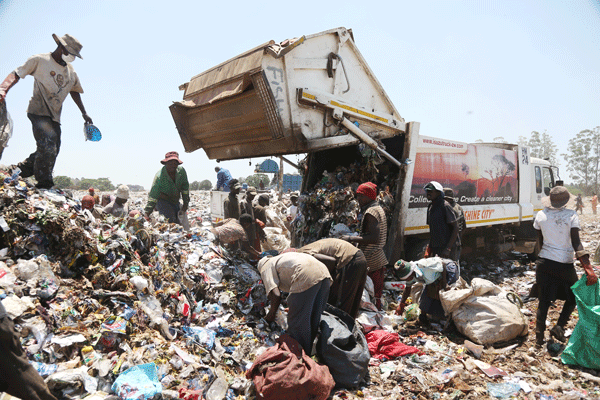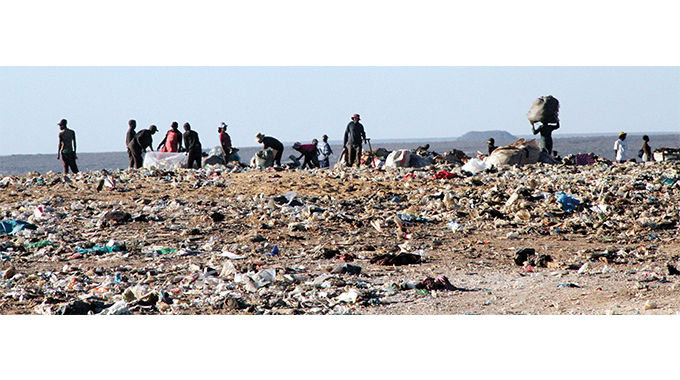BCC resolves to terminate solid waste-to-energy project contract
BULAWAYO City Council has resolved to terminate a solid waste-to-energy project contract it entered into with a United Kingdom-based Pragma Leaf Consulting Zimbabwe company citing lack of zeal and delays in implementing the project by the firm.
Bulawayo City Council (BCC)
The proposed US$150 million project was granted national project status by the Government and was meant to be the first of its kind for the city which is struggling with waste management.
At law, projects awarded national project status get preferential treatment, which includes exemption from paying import duty and other taxes.
The status is awarded to projects which have significant capital outlay in terms of equipment, services, and skills not presently available within the country.
The scope of the project was to convert council waste to biodiesel, electricity and biogas and bridge the energy gap in the country while creating meaningful jobs.
Council signed a contract for the treatment and disposal of municipal solid waste with Pragma Leaf Consulting on November 30, 2018.
The contractor was to mobilise resources and commence operations within 120 days of signing the contract.
The major highlights of the contract entailed Pragma Leaf Consulting designing, constructing and operating a sorting facility and operating a processing facility that turns municipal solid waste into energy using various technologies.
Added to that, the firm was expected to also design and construct a power plant of sufficient capacity to provide electricity.
However, according to the latest council monthly report tabled on Wednesday during the full council meeting, the director of Health Services, Dr Edwin Sibanda told the council that since 2018, “the contractor has been coming up with various excuses such as Covid-19 in 2019 and 2020 which they claimed it affected their movements and that of their funders.”
Dr Sibanda said Pragma Leaf Consulting major players are based in the United Kingdom and the council has been engaging them through holding virtual meetings.
Dr Sibanda said after several engagements, the firm responded on 7 April this year providing details in the form of a Gnatt chart.
Covid-19
“Unfortunately, according to the Gnatt chart, the first step was to submit building plans, approval of plans, and build a material recovery facility (MRF) with the final commissioning of the facility in December 2022.
“It was noted that from the time of signing of the contract and the envisaged commissioning of the MRF it would have taken four years to commence instead of 120 days.
“This situation was not ideal as Council is faced with challenges in solid waste management and signing for this project was meant to solve these challenges,” he told the Health, Housing and Education Committee.
Dr Sibanda said as a committee they suggested the cancellation of the contract noting that there was no meaningful progress.
However, he said the legal section advised the committee that there was a possibility of the company going for litigation which may inconvenience the Council as legal matters sent to court tend to drag on for a long time.
When such a situation arose, it meant the council may not engage another company before the matter has been resolved by the courts, he added.
“Following this legal advice, we continued engaging Pragma Leaf until they submitted the building plans which they do not seem to have the zeal to have the plans finalised or the project commencing.
“Furthermore, the scope of the project seems to have scaled down to a material recovery facility only for now and this will not have any impact on the current solid waste management challenges which the city is facing.”
He added that keeping the contract open indefinitely was a disadvantage to the Council which was struggling with solid waste management.
“It was therefore recommended that the contract be terminated,” said Dr Sibanda.
Council then resolved to recommend the termination of the contract.
“That the contract for the treatment and disposal of municipal solid waste signed between Council and Pragma Leaf Consulting be terminated on the reasons stated in the above report,” reads the resolution tabled on Wednesday during the full council meeting.
The project would have led to the safe treatment of waste to produce liquid fuel, green jobs, and ensuring a clean environment.
The proposed W2E Plant was to process 325 tonnes of waste per day and generate 78 000 to 110 000 litres of biodiesel per day, 6 000 cubic metres of biogas, as well as 11,35 Megawatts (MW) of electricity.
The granting of national project status was expected to speed up the implementation of the project at a time when the country is contending with fuel and power shortages.
Local and foreign investors have already expressed their interest to champion solar and waste-to-energy projects.
The drive towards renewable energy is also in keeping with the global climate change mitigation efforts, which encourage the adoption of environmentally friendly energy sources.-chronicle.co.zw








